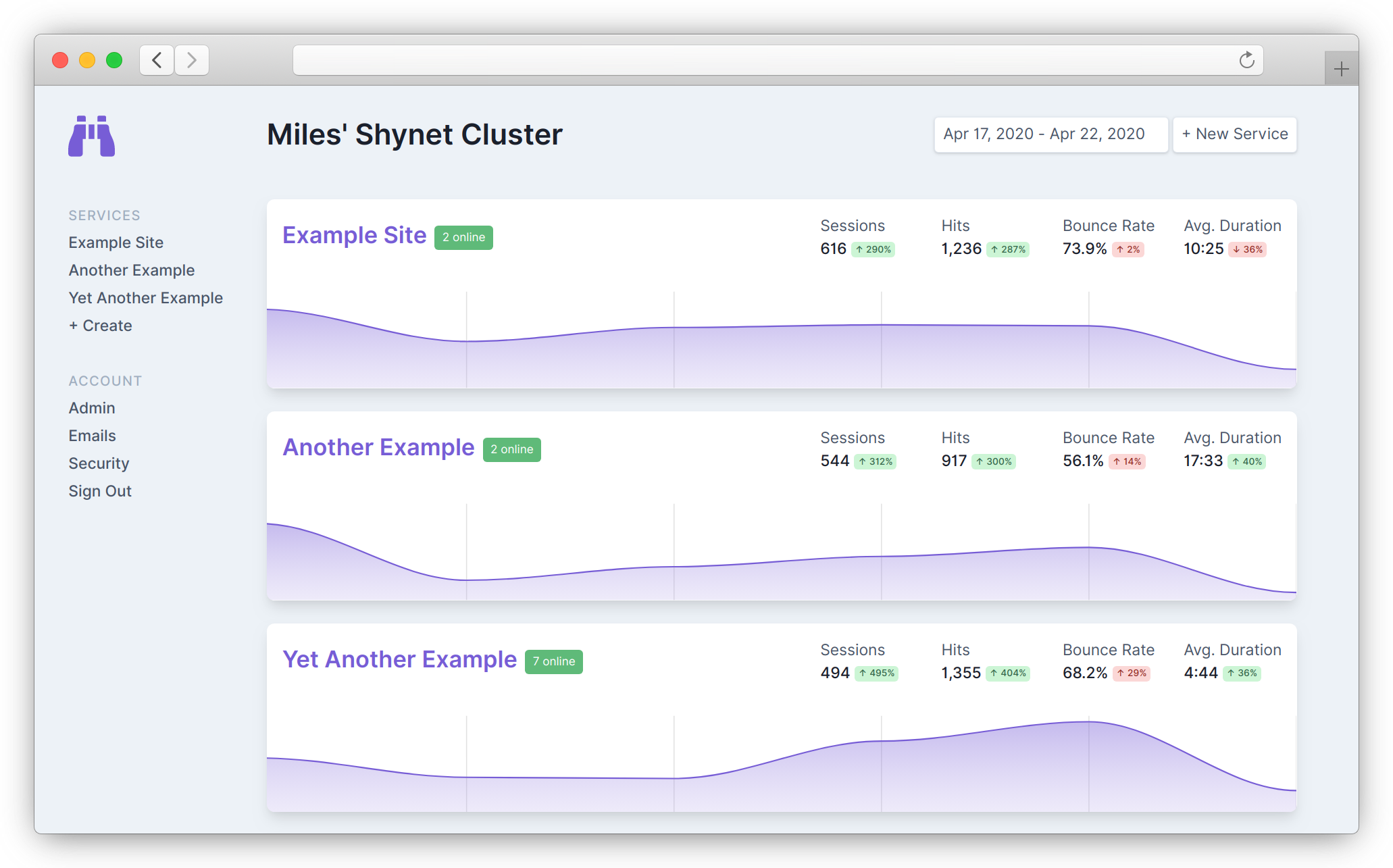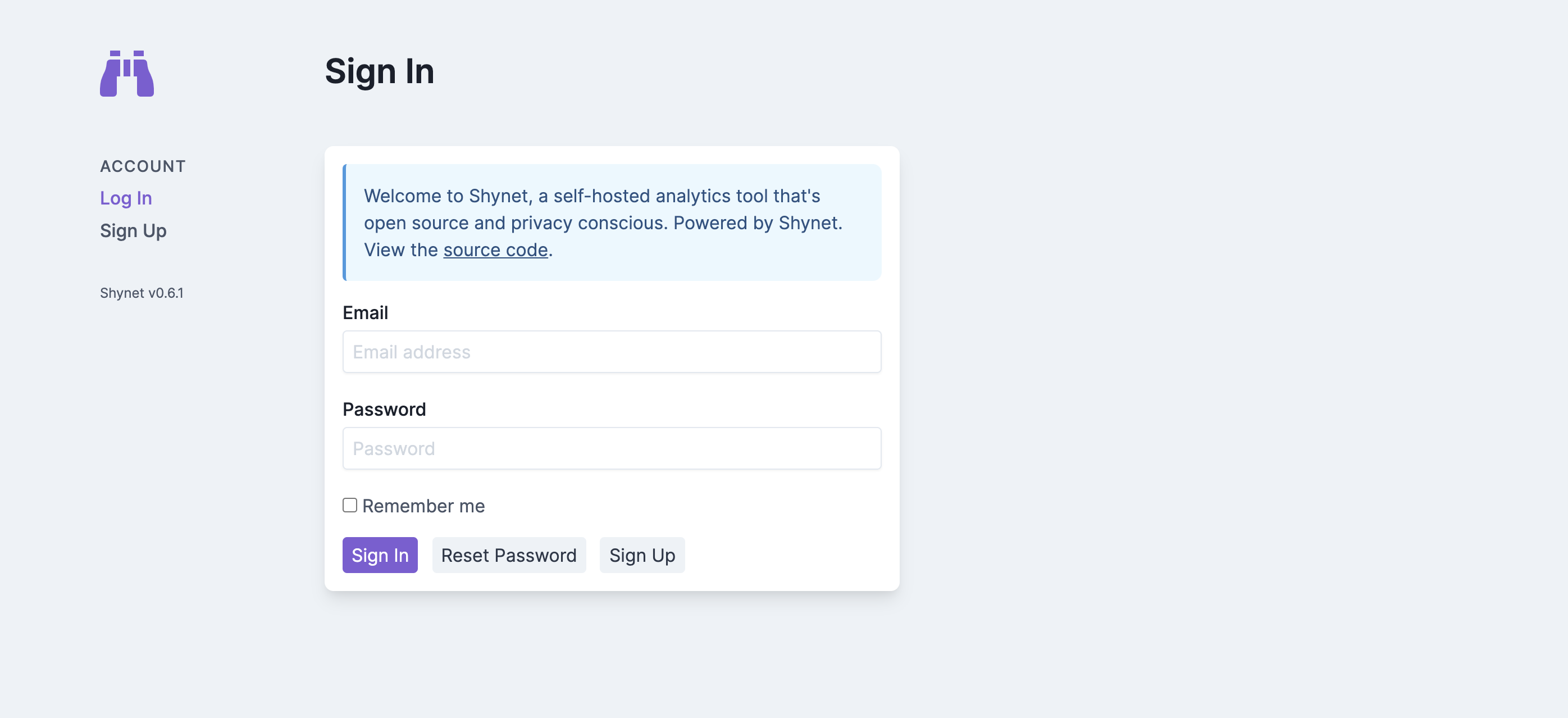Deploy Shynet
Shynet is an open-source cookie-free analytics tool that you can easily deploy on Render. Created with Django and a17t, it's intended for personal projects and small to medium size websites.

You can host your own Shynet instance on Render in just a few minutes. Once it's live you will be able to log in and get your JavaScript snippet. You can add it to any website to get instant access to detailed, real-time analytics.
One-Click Deploy
Click Deploy to Render below to set up Shynet on Render.
After deployment, use Render Shell to set up your account with those 3 commands:
- Set your email with
./manage.py registeradmin your-email@example.com. You will be prompted with a temporary password. Save it. - Set your whitelabel with
./manage.py whitelabel "Header for your Shynet site". It will be shown at the top of your Shynet site. - Update the
CSRF_TRUSTED_ORIGINSenvironment variable to your deployed Render service domain.
You can now open your Shynet instance. You'll find your unique URL, that looks something like https://your-shynet-domain.onrender.com, at the top of your service dashboard. Log in with your email, and previously saved password and start using Shynet!
Manual Deploy
Follow these steps to manually deploy Shynet on Render.
Create a Database
Create a new managed PostgreSQL instance on Render. The database should be up in a few minutes; wait for it to go live before moving to the next step.
You'll need details from your database before you can deploy Shynet web service.
Deploy Shynet
-
Fork render-examples/shynet on GitHub or click
Use this template. -
Create a new Web Service on Render and give Render's GitHub app permission to access your new repository. Make sure the Language field is set to
Dockerand pick a name for your service. -
Add the following environment variables to your web service:
Key Value DB_NAMEDatabasevariable from your newly created databaseDB_HOSTHostnamevariable from your newly created databaseDB_PORTPortvariable from your newly created databaseDB_USERUsernamevariable from your newly created databaseDB_PASSWORDPasswordvariable from your newly created databaseCSRF_TRUSTED_ORIGINSRender service domain including scheme ( https://)Save your web service to deploy Shynet on Render and wait for it to go live before continuing with the next step.
-
After deployment, use Render Shell to set up your account with the following commands:
- Set your email with
./manage.py registeradmin your-email@example.com. You will be prompted with a temporary password. Save it. - Set your whitelabel with
./manage.py whitelabel "Header for your Shynet site". It will be shown at the top of your Shynet site.
- Set your email with
You can now open your Shynet instance. You'll find your unique URL, that looks something like https://your-shynet-domain.onrender.com, at the top of your service dashboard. Log in with your email, and previously saved password and start using Shynet!
